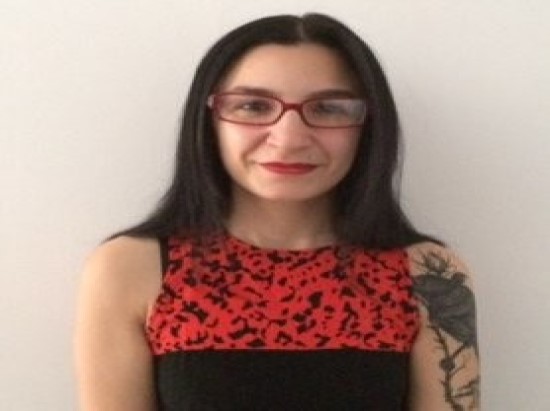Dr. Mine Conkbayir: Revolutionizing Early Childhood Education Through Neuroscience

In recent years, the application of neuroscience in early childhood education has gained momentum, with experts like Dr. Mine Conkbayir leading the charge. With over 20 years in early childhood education, Dr. Conkbayir is an award-winning author, trainer, and consultant renowned for her work on self-regulation and trauma-informed practices for young children. Her contributions have reshaped early years education and empowered educators, health professionals, and policymakers with the tools to create nurturing, neuroscience-based environments. In this article, we’ll explore Dr. Conkbayir’s journey, key contributions, and influence on the field.
Background and Early Life
Dr. Mine Conkbayir, born in London, England, began her career with a deep passion for enhancing early childhood education. Although her exact age remains private, her career achievements speak volumes about her extensive expertise. Her educational background includes a Master’s degree in Early Childhood Education from University College London’s Institute of Education and a Ph.D. specializing in early childhood neuroscience. These academic credentials laid the foundation for her work, profoundly influencing professionals working with young children.
Understanding Dr. Mine Conkbayir’s Philosophy
At the core of Dr. Conkbayir’s approach is her belief that early childhood is the most critical phase for emotional and cognitive development. She emphasizes the significance of understanding and nurturing self-regulation in children, which helps them manage emotions, interact positively with others, and build resilience. She says, “Without self-regulation, children struggle to calm themselves, develop meaningful relationships, communicate reciprocally, and succeed in life.”
Dr. Conkbayir also advocates for trauma-informed practices, noting that children who experience Adverse Childhood Experiences (ACEs) are more likely to face challenges in emotional and social development. By training educators and caregivers to recognize and address these experiences, Dr. Conkbayir is working to ensure that no child is left behind due to emotional or behavioral struggles rooted in early trauma.
Applying Neuroscience to Early Intervention
One of Dr. Conkbayir’s landmark initiatives is the program “Applying Neuroscience to Early Intervention: One Practitioner at a Time.” This program seeks to bridge the gap between neuroscience research and early years practice, equipping professionals with practical tools and insights into brain development and self-regulation. Participants earn an official CACHE-endorsed certification, which qualifies them as “Neuroscience Champions” capable of cascading this knowledge within their organizations.
Dr. Conkbayir’s program is unique because it doesn’t stop at early years educators. It extends to professionals across multiple sectors, including social workers, police officers, and healthcare providers, all of whom can benefit from understanding childhood brain development and behavior management through a neuroscience lens. This comprehensive approach makes the program one of the most impactful interventions in early childhood care today.
The Impact of Self-Regulation on Child Development
Self-regulation is central to Dr. Conkbayir’s teachings, as outlined in her book, The Neuroscience of the Developing Child. Self-regulation is the ability of children to manage their emotions, thoughts, and behaviors, a skill crucial for mental and emotional well-being. Dr. Conkbayir’s program explains self-regulation through practical activities and examples, enabling educators to foster this essential skill in young children.
Her work also highlights the role of co-regulation, where adults provide guidance and support to help children navigate their emotions and experiences. This process, often overlooked in traditional education systems, teaches children to develop empathy and trust while equipping them with tools for lifelong emotional resilience.
Adverse Childhood Experiences (ACEs) and the Need for Trauma-Informed Practices
Dr. Conkbayir has raised awareness about Adverse Childhood Experiences (ACEs) and their impact on children’s development. ACEs include traumatic events such as family separation, abuse, or neglect, which can significantly affect a child’s neurological development. Research indicates that children exposed to ACEs often face difficulties with self-regulation, leading to behavioral and emotional challenges in school and social settings.
Dr. Conkbayir teaches educators to recognize signs of trauma and adopt trauma-informed practices through her advocacy and training programs. These methods help children feel safe and supported, allowing them to thrive despite past adversities. Her efforts have transformed countless classrooms into safe havens where children can learn and grow without the burden of unaddressed trauma.
The Keep Your Cool Toolbox: An Innovative Resource
In addition to her books and training programs, Dr. Conkbayir has developed tools like the Keep Your Cool Toolbox, a free app that provides children and caregivers with self-regulation strategies. The app includes exercises and interactive content to help children manage their emotions constructively. Dr. Conkbayir designed this tool to extend her teachings beyond formal training environments, allowing families and educators to reinforce self-regulation practices daily.
Awards and Recognition
Dr. Conkbayir’s pioneering work has earned her numerous awards, solidifying her reputation as a leading figure in early childhood neuroscience. She has received the prestigious Nursery Management Today (NMT) Top 5 Most Inspirational People in Childcare Award and honors from Teach Early Years and Nursery World for her self-regulation training program. Her books, including Early Childhood and Neuroscience: Theory, Research, and Implications for Practice, have become essential reading in childcare and education programs across the UK.
Future Directions and Ongoing Influence
Looking forward, Dr. Conkbayir aims to continue expanding her reach, advocating for a more neuroscience-informed approach in all fields that interact with children. She seeks to bring her training programs to a global audience, ensuring that early years practitioners worldwide can benefit from her insights into self-regulation and trauma-informed care.
Her role as an independent advisor with organizations like Yoginis Yoga Training and the London Early Years Foundation further demonstrates her commitment to creating emotionally nurturing environments for young children. Through these collaborations, Dr. Conkbayir integrates the latest neuroscience research into accessible training for professionals across various fields, amplifying the impact of her work.
Conclusion
Dr. Mine Conkbayir’s contributions to early childhood education are transformative. Her emphasis on self-regulation, trauma-informed practices, and applying neuroscience to early years education has redefined how we approach child development. Dr. Conkbayir’s resources, training programs, and advocacy pave the way for a future where every child can thrive emotionally, socially, and academically. Her legacy is a testament to the power of compassionate, evidence-based education that honors the potential within every child.



